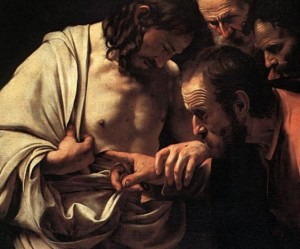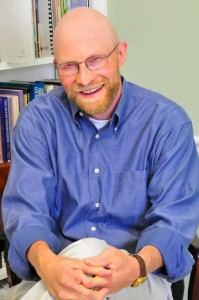Do you have to carry a cross, if you’re not following Jesus? And what is my cross anyway?
“That’s just my cross to bear,” said the suffering traveler. You’ve probably heard this from a variety of people in difficult situations. You may have been told that some challenge or illness or poverty is “just your cross to bear.” What is this metaphorical cross? And why does everyone have one? It seems to be central in the teaching of Jesus, as he called it a prerequisite for being his disciple, but what exactly is it?
Whether you are reading the biographical accounts of Jesus written by Matthew, Mark or Luke, eventually you will come across this direct demand from the Nazarene Jesus. It goes something like this, Jesus told his disciples, “if anyone would come after me, let him deny himself and take up his cross and follow me.” In the Matthew 16 account, Jesus goes on to talk about the trade off of gaining the world while losing your soul and what is a soul really worth. So, we are left with the question of losing the world, but gaining our souls. That seems a fair prospect, but Jesus goes on to sweeten the pot by saying that he and his angels will come in the glory of the Father and “repay each person according to what he has done.” This is remarkable in its specificity – each person – as well as in the offer, which appears to be very generous.
Recently, I wrote this in my journal:
I am going through a sobering time of seeing, again, how slim our resources are and how anxious and fearful I can become. I remember that in 2007 our situation seemed even worse. Certainly, I felt more helpless and hopeless then. I can see now that health and financial challenges are my cross to bear.
As I wrote this, the Spirit nudged me with the questions of how do you know what your cross is and what was Jesus talking about when he called you to take up your cross? I took a step back and began to reflect more deeply.
Jesus was teaching his followers a very important principle related to both the deep religion of following him and a lesson in balance between the spiritual and material world. He did this often in responding to temptations of things like food versus spiritual food. “Man does not live by bread alone,” Jesus said. Of course, this is a bit confusing and disturbing because we do need food to live and, yet, Jesus tells us that that is not enough. This is where a sense of humility and naivetè comes into the picture. Jesus asks us to step out of the norm and accepted and apply his spiritual instruction to our physical and material lives.
Shortly after this teaching, Jesus broke through the physical with the spiritual reality of his identity as the Bright and Morning Star as he was transfigured and “his face shone like the sun, and his clothes became white as light.” This experience illustrated that the line between the physical and spiritual is a narrow space.
Let’s go back to Jesus’ description of what it takes to be his disciple. In Matthew 16:24ff, Jesus said, “Whoever wants to be my disciple must deny themselves and take up their cross and follow me.”
What is your cross? What was Jesus’ cross? What do we know for sure? Jesus’ cross was, in fact, a real wooden cross that he carried to the Hill of Death. He later hung on that cross and uttered that his mission and calling was finished. So, for Jesus, his cross, both actual and metaphorical, represented his mission, calling, purpose and vocation. It was the reason he came to earth. It is the single greatest symbol of redemption and hope that we have in the world. And it is a symbol of pain, suffering and execution.
For Jesus, perhaps, it was both a burden and a passion. Maybe it was more a passion than a burden, then more a burden than a passion. He was the only one who could carry his cross and I suspect that you are the only one who can carry your cross. And while it does require self-denial and work, there is a joy and sense of calling present that we have been missing – that I have been missing.
Jesus talks about “losing your life for Him.” The primary way I’ve seen that applied is through our giving up our ambitions and goals and taking on his ambitions and goals: the cross. We have to ask Jesus and our community of faith to help us understand what that means. As Jesus pointed out earlier, our reward is specific and our cross is specific. Only I can carry my cross. I have a part to play that is mine and mine alone. This is what Jesus knows is best for his mission and the best for us. We have limited our interpretation or application of this calling by focusing on an aspect of suffering or difficulty when, I believe the Spirit wanted me to see, Jesus was talking about something larger and all encompassing.
Jesus’ deepest calling was to creation, restoration and glory. And doing those with the Father and the Holy Spirit. While on earth, he paid particular attention to following the words he heard from his father. In the same way, we are to pay particular attention to the words of Jesus. We are called to follow Jesus. And we are called to carry a cross that might include sacrifice and difficulty, but also purpose and fulfillment. But you don’t have to carry a cross if you don’t want to follow Jesus.
Postscript
And what about my cross? I’ve learned that it is much more than my health struggles and my financial scarcities. It is my desire for you to know the depth and breadth of God’s love for you and the nearness of God to you. It is my passion to write and my passion to see families in love with each other. It is my submission and willingness to be naïve when it comes to following the teachings of Jesus. It’s all my stuff, too. It’s me.



